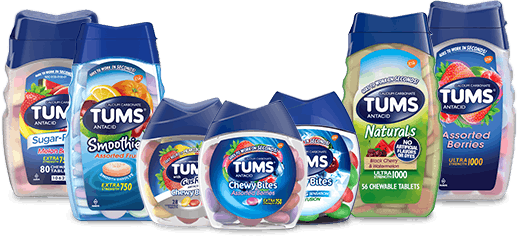What You Can Do to Help Support Occasional Night-Time Heartburn
Avoid eating before bed.
Night-time heartburn is heartburn that occurs at night, and 70-75% of weekly heartburn sufferers may experience it, with 40% of those people reporting that it disrupts their sleep.1 When you are upright, gravity helps keep stomach acid in the stomach where it belongs, but when you lie down at night, it can become easier for stomach acid to push past your lower esophageal sphincter (LES) and leak into your esophagus.1 Learn how to help support and treat heartburn at night so it doesn’t interfere with your evening and sleep.
The Negative Effects of Heartburn at Night
For many people, night-time heartburn can be more disruptive than the symptoms they experience throughout the day. A good night’s sleep is critical to support healthy brain function, metabolism, immune function and more.5 Night-time heartburn can make it hard to fall, and stay, asleep.2
Occasional night-time heartburn, even once a week, can cause daytime drowsiness, decrease productivity at work, and negatively impact your daily life on the overall. This type of heartburn also has been linked to increased snoring and respiratory conditions like chronic cough and wheezing.1
How to Mitigate Occasional Heartburn at Night
It can be hard to get a good night’s sleep if your heartburn keeps waking you up. To help relieve occasional night-time heartburn, consider making a few changes to your diet and lifestyle:2,3,4
- Avoid eating before bed. Wait at least three hours after your last meal of the day before you lie down.
- Eat smaller, less fatty meals throughout the day, especially at night.
- Be mindful of your trigger foods. Tomatoes, lemons, dairy products, and alcohol have all been shown to cause heartburn in some individuals.
- Lie on your left side. Sleeping on your left side allows acid to pass through your esophagus and into your stomach more easily.
- Elevate your head. Sleeping with your head in an elevated position allows gravity to help you digest. Try using a body pillow or placing some books or bolsters under the feet of your bedframe at the head of your bed.
- Avoid or quit smoking. Tobacco products can exacerbate heartburn.
- Maintain a healthy weight. Overweight individuals are at a higher risk for developing heartburn and acid reflux.
- Try a dietary supplement like TUMS+ Heartburn + Sleep Support can help neutralize the excess acid in your lower GI tract.
How to Help Support Occasional Heartburn and Fall Asleep Faster at Night
If occasional heartburn is keeping you awake, TUMS+ Heartburn+ Sleep Support is a dietary supplement with a delicious berry fusion flavor that has contains melatonin to help you fall asleep faster. ✝^*
✝Melatonin provides relief from occasional sleeplessness.
^Compared to those not taking melatonin.*
*These statements have not been evaluated by the Food and Drug Administration. This product is not intended to diagnose, treat, cure or prevent any disease.
References
- Management of Nighttime Gastroesophageal Reflux Disease. National Library of Medicine. https://www.ncbi.nlm.nih.gov/pmc/articles/PMC3099296/. Accessed 8/24/23.
- Diagnosis and management of night-time reflux. Alimentary Pharmacology and Therapeutics. https://onlinelibrary.wiley.com/doi/full/10.1111/j.1365-2036.2004.02241.x. Accessed 12/7/23.
- Why Does Your Heartburn Always Seem Worse at Night? Cleveland Clinic. https://health.clevelandclinic.org/why-does-your-heartburn-always-seem-worse-at-night/. Accessed 8/24/23.
- What’s the best sleep position to combat heartburn? Harvard Health Publishing. https://www.health.harvard.edu/diseases-and-conditions/whats-the-best-sleep-position-to-combat-heartburn. Accessed 8/24/23.
- Why is Sleep Important? National Heart, Lung, and Blood Institute. https://www.nhlbi.nih.gov/health/sleep/why-sleep-important. Accessed 12/7/23.


